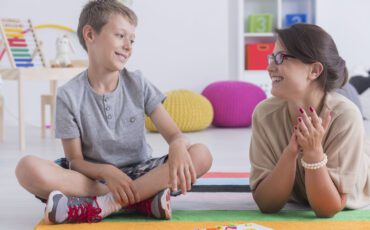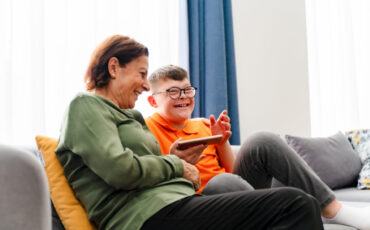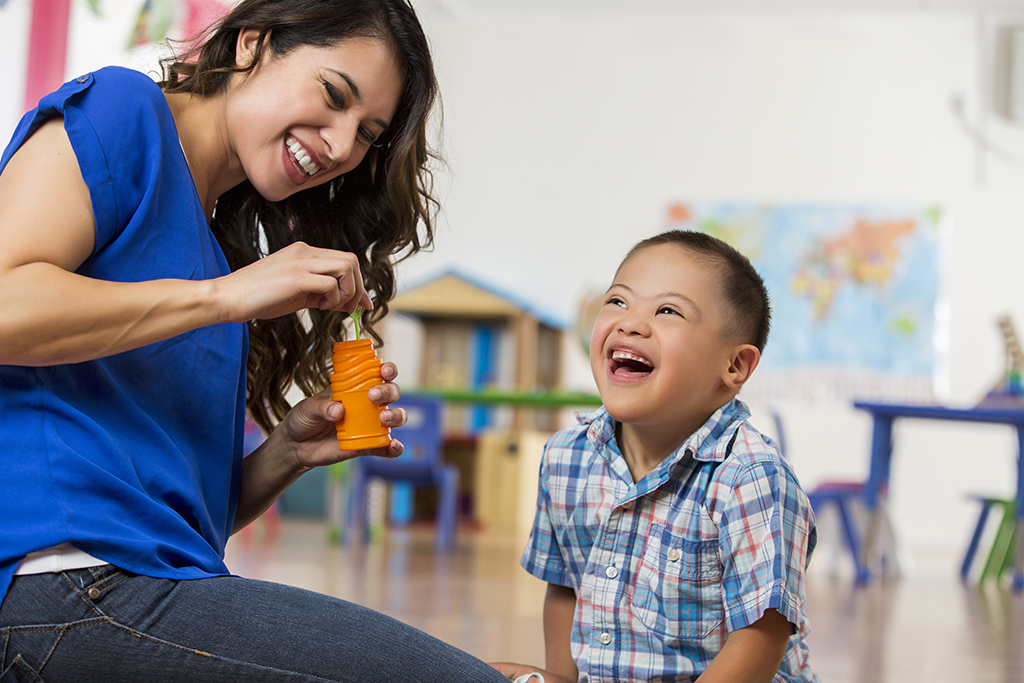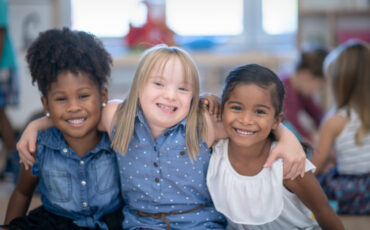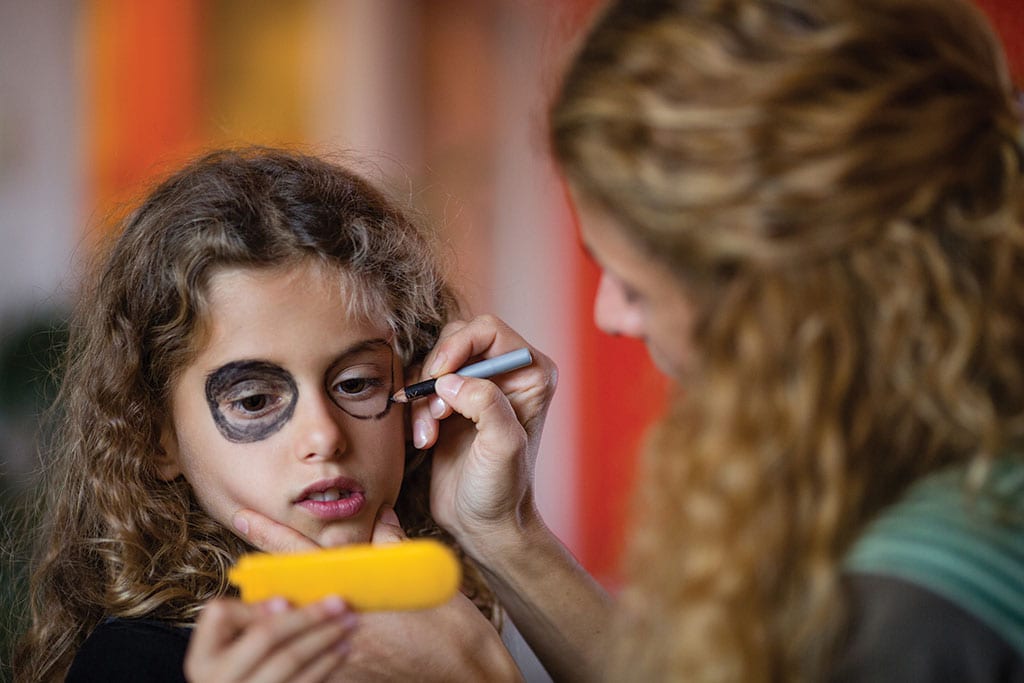Autism: What You Need to Know

Kids with autism spectrum disorder (ASD) don’t think, behave, communicate or interact like neurotypical kids. More than half are as smart or smarter than their peers, but some may struggle with social skills or behavior all their lives.
Read on for what you need to know about ASD. And here’s what you need to remember: Like their peers, kids with ASD are growing and learning, and they have unknown potential.
Table of Contents
10 Things Parents of Kids with Autism Wish You Knew
- Don’t make assumptions. Just because a child is non-verbal doesn’t mean they can’t understand what is being said to them or about them.
- Telling the parent of a high-functioning autistic child that they don’t look “disabled” is hurtful and insulting.
- No two children with ASD are exactly alike; each has different needs, abilities, disabilities and characteristics.
- Autistic children are so much more than their diagnosis – they are amazing and talented.
- The daily struggles of a child with ASD are sometimes great, but it makes the successes they achieve that much sweeter.
- A little support goes a long way. Don’t feel pity; help if you can, empathize if possible, but always show respect and dignity.
- Parenting is difficult already – having a child with autism adds to it. An empathetic smile or a nod during a tantrum in a public place is more helpful than a disapproving frown.
- Children with autism may seem socially distant, but most desire to have friendships but need help developing the social and communication skills to successfully interact with peers.
- If you see a child older than two or three screeching instead of talking, there is a good chance that child has autism and is not just being “bad” or “acting out.”
- Parents of children with ASD learn to see the world in a unique and beautiful way that those not walking the same path may not be able to comprehend.
Who Should Be Screened?
The American Academy of Pediatrics recommends all children be screened at least twice before the age of 24 months. Research has shown children with autism do better with early diagnosis and therapy.
Autism Red Flags:
Children with autism can make great gains throughout life. Know the following “red flags” by age:
- By 6 months: Few or no big smiles or engaging expressions; Limited or no eye contact
- By 9 months: Little or no back-and-forth sharing of sounds, smiles or other facial expressions
- By 12 months: Little or no babbling, back-and-forth gestures such as pointing, showing, reaching or waving; Little or no response to name
- By 16 months: Very few or no words
- By 24 months: Very few or no meaningful, two-word phrases (not including imitating or repeating
Is It Autism?
A child with ASD might have these symptoms, though a typical child also could display some of these symptoms:
- Doesn’t respond to their name by 12 months of age
- Doesn’t point at objects to show interest (point at an airplane flying over) by 14 months
- Doesn’t play pretend games (pretend to feed a doll) by 18 months
- Avoids eye contact and wants to be alone
- Has trouble understanding other people’s feelings or talking about his own feelings
- Has delayed speech and language skills
- Repeats words or phrases over and over
- Gives unrelated answers to questions
- Gets upset by minor changes
- Has obsessive interests
- Flaps his hands or arms, rocks his body, or spins in circles
- Has unusual reactions to the way things sound, smell, taste, look or feel
Autism by the Numbers:
- 1 in 36: The estimated number of children diagnosed with an autism spectrum disorder, according to the CDC. In 1975, an estimated 1 in 1,500 were diagnosed with ASD.
- 4: The number of times boys are more likely to be diagnosed with autism than girls.
- 2-18: The percent chance that parents who have a child with ASD have of having a second child who is also affected.
- 44: The percentage of children with autism who have IQ scores in the average to above average range.
- 40: the estimated percentage of people with autism who are nonverbal.
- $60,000: The amount, on average, autism costs parents or caregivers annually.
Tips for Family Friends:
To get to know a child with autism, adults and kids could try some of these strategies:
- Keep conversations focused and simple. They are literal thinkers – they will go to the window to see cats and dogs if you say, “It’s raining cats and dogs.”
- Talk about what the kid wants to talk about. Some might be obsessed with certain subjects, like superheroes or trains.
- Be patient. Kids with ASD often take longer to process information.
- Stay positive. They respond to positive reinforcement; ignore acting-out behavior.
- Play with the child or encourage your kids to play. Sometimes they communicate better and feel calmer when they’re moving or focused on a toy.
- Be affectionate. Kids may not be able to express appreciation, but most of them love hugs.
- Believe in them. Kids with autism are growing children with an unknown potential; don’t define the kid by the diagnosis.
Atlanta’s Nationally-Recognized Center for Autism
Marcus Autism Center, one of the largest autism centers in the United States, has been serving children and adolescents with autism and related disorders since 1991. It is one of only five National Institute of Health (NIH) Autism Centers of Excellence (ACE). The ACE designation supports research to identify causes and best treatments of autism. In conjunction with Children’s Healthcare of Atlanta, the center treats more than 5,500 children each year, and offers services such as assessment and diagnosis, medical services, severe behavior therapy and a language and learning program.
Children will be assessed and diagnosed at the center in two groups: Ages 2 and younger will be tested using the one-day toddler evaluation and ages 3 and older will have a two-day appointment. These involve developmental testing, assessment of social interaction, communication and other objectives. Parents will receive a full report of the findings so they can choose the next step for treatment.
Research is an important part of what Marcus Autism Center does, and it seeks participants for its ongoing studies. The center is now enrolling participants in several studies for expectant mothers and newborns, toddlers and school-age children.
Therapies, Treatments and Interventions:
As ASD affects each person differently, treatment plans often involve multiple professionals and include different therapies to cater to the individual.
- Applied Behavior Analysis: Training methods that encourage desired behaviors and discourages undesired behaviors to improve a variety of skills.
- Speech and Language Therapy: Improves the person’s understanding and use of speech and language, either through verbal communication or the use of signs, gestures, pictures or electronic communication.
- Occupational Therapy: Teaches skills that help the person live independently.
- Sensory Integration Therapy: Improves responses to sensory input that may be restrictive or overwhelming.
- Social-Relational Treatments: Focus on improving social skills and building emotional bonds.
- Cognitive-Behavior Therapy: Helps children with ASD cope with anxiety, depression and other mental health issues: it focuses on learning the connections between thoughts, feelings and behaviors.
- Floortime: A relationship-based therapy for children where adults play and interact with the child at their level.
- Relationship Development Intervention: A family-based, behavioral treatment focused on building social and emotional skills.
- Joint Attention Therapy: Improves specific skills related to shared attention, such as pointing, showing or coordinating looks between a child and an object.
For More Information:
Families of children with autism don’t have to go it alone. Support groups such as Autism Speaks, the Georgia Center for Autism, and Spectrum provide information, support and organize events for families. Lekotek of Georgia serves families of all disabled children, including many with autism, with a goal of playing and learning together and providing support. The Atlanta Walk is an annual fundraising event presented by Autism Speaks and Marcus Autism Center; check their calendar for information.
Learn more about special needs resources available to families in Atlanta Parent’s Special Needs Resource Guide.
Sources: Centers for Disease Control and Prevention, Marcus Autism Center, National Autism Association, Autism Speaks, University of Rochester Medical Center.



